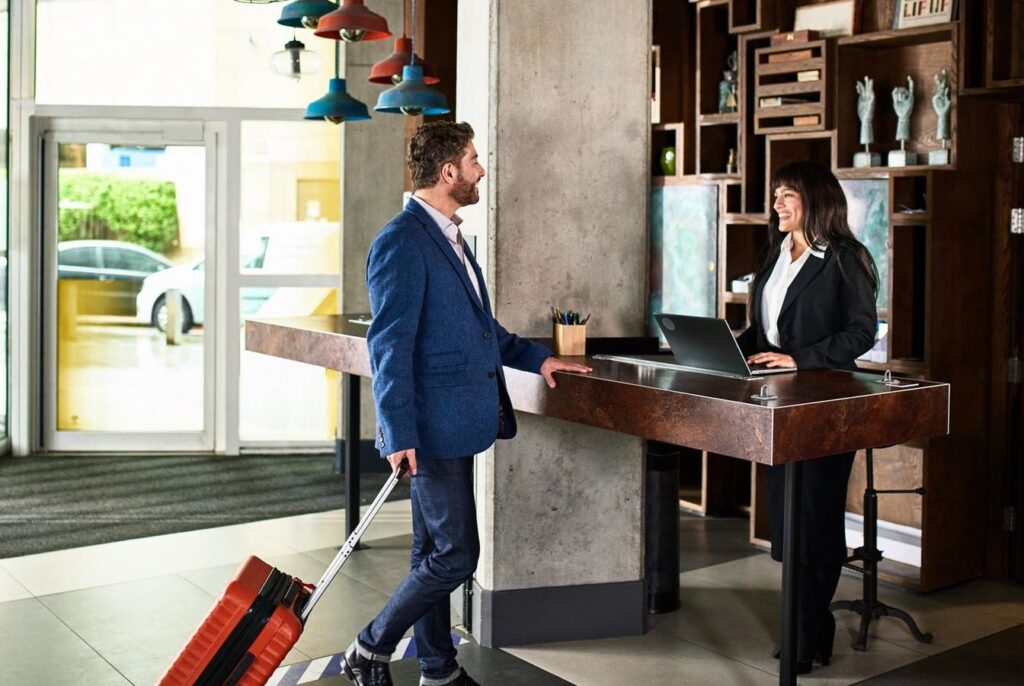Pascal Bélanger, Senior VP Americas at Plaza Premium Group, leads a global provider of hospitality services and airport lounges.
Airports are often associated with stress—long lines, tight connections and a transactional experience that can strip away the joy of travel. However, for a growing segment of travelers, particularly in the premium and luxury space, the narrative is shifting. Luxury is no longer just about a better seat on the plane or champagne in the sky—it’s about a better journey from the time you step into the airport. Enter the modern-day airport concierge—or what I like to call the “personal butler for your boarding pass.”
Whether you’re a celebrity, a CEO or a family navigating an unfamiliar terminal, today’s premium airport services go far beyond convenience. They can coordinate your journey with the precision of a backstage crew at a Taylor Swift concert—minus the glitter, of course! This shift is not just anecdotal, it’s backed by a growing global trend. The luxury concierge service industry is projected to reach over $1.4 billion by 2034, fueled by increasing demand for personalized, high-touch experiences across the travel sector.
What’s driving this evolution and what can businesses across the travel ecosystem learn from it?
Luxury today isn’t about excess—it’s about elimination.
The new premium travel experience isn’t defined by extravagance, but by the absence of friction. Today’s luxury travelers don’t necessarily want more, they want less—less stress, less waiting, less uncertainty. And airport concierge services can deliver that by offering pre-travel planning, fast-tracked security, porter services, lounge access, curbside-to-gate escorts and, in some cases, the ability to meet clients at the aircraft door. The takeaway is simple: Remove obstacles before adding indulgence.
The future of travel is hyper-personal.
Luxury isn’t one-size-fits-all. Executives want speed and privacy. Families want comfort and support. Leisure travelers want to feel looked after.
Successful airport concierge programs don’t just respond to needs—they anticipate them. Services should be tailored to the traveler’s profile and preferences well before they even arrive at the airport. At the same time, these programs should also be able to adapt on the fly, stepping in during last-minute changes like flight delays or cancellations. In both cases, the goal is to deliver an emotional benefit that technology alone can’t replicate: being seen.
This level of personalization can build trust, emotional connection and repeat loyalty. In an era where digital travel tools are increasingly transactional, personalized and human-led service becomes a powerful differentiator.
Experiences start before boarding and often shape brand perception.
Most travel brands focus on the destination or in-flight experience but often overlook the journey itself, especially the time spent in the airport. Yet, airports are the first and last brand touchpoints, and often the most stressful. As Business Traveler notes, the most forward-thinking airports and service providers are embracing this shift, turning check-in, security and boarding into choreographed, hospitality-driven moments. In doing so, they’re making luxury not just aspirational, but accessible.
As the expectations of luxury travelers continue to evolve, one thing is clear to me: The modern-day travel experience is no longer defined by the cabin you fly in, but by the service that gets you there. The “personal butler” of travel might not wear white gloves or carry a silver tray, but their value for consumers lies in the quiet orchestration of every moving part.
Forbes Business Council is the foremost growth and networking organization for business owners and leaders. Do I qualify?
Read the full article here











